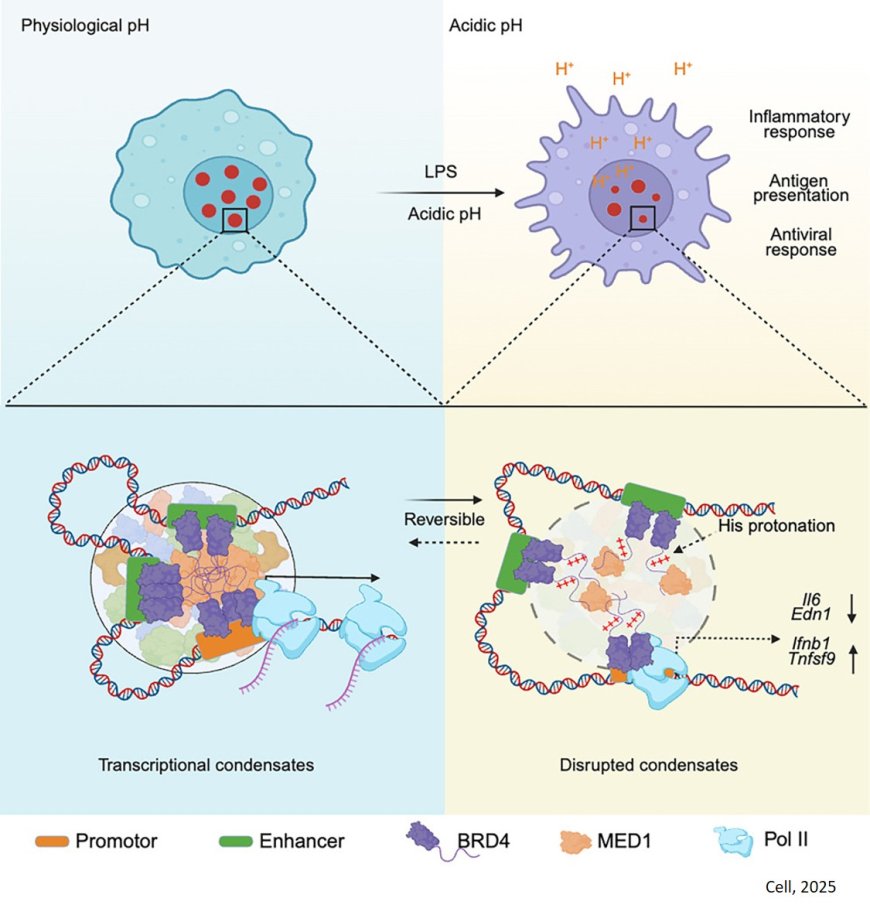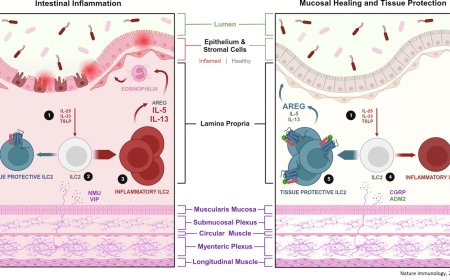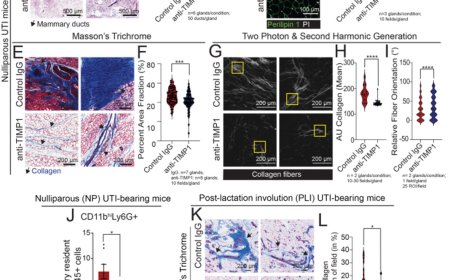How pH impacts the immune system

New research published in Cell has found that the environment inside our bodies, specifically, the pH level within cells, has a powerful influence on the immune system.
The researchers found that acidic pH restructured the inflammatory response of macrophages in a gene-specific manner.
The research team identified a key molecular sensor that detects changes in intracellular pH and helps regulate the body’s immune defense.
They show that mammalian BRD4 as an intracellular pH sensor. Acidic pH disrupts transcription condensates containing BRD4 and MED1 via histidine-enriched intrinsically disordered regions.
The authors found that a decrease in macrophage intracellular pH is necessary and sufficient to regulate transcriptional condensates in vitro and in vivo, acting as negative feedback to regulate the inflammatory response.
This sensor may affect how cells respond to bacterial infections and may also influence susceptibility to inflammatory diseases and cancer.
These findings open up a new way of thinking about how our internal environment shapes immune function, and could lead to innovative strategies for disease prevention and treatment.
https://www.cell.com/cell/fulltext/S0092-8674(25)00735-4
https://sciencemission.com/Regulation-of-inflammatory-responses-by-pH













